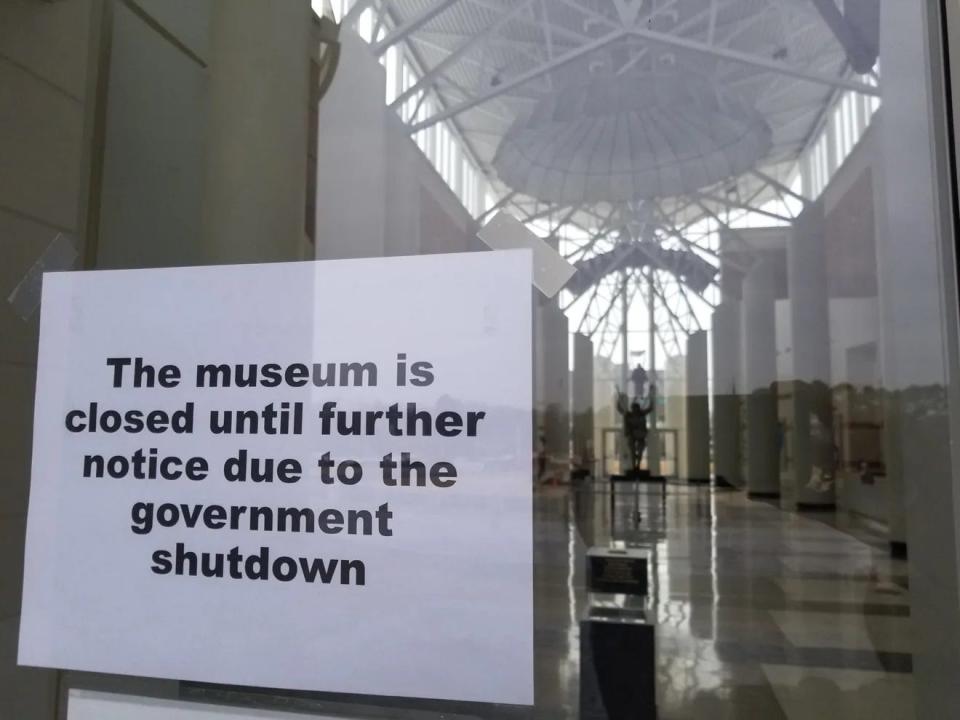What a government shutdown could mean for Fort Liberty
With the threat of a government shutdown, more than 51,500 servicemembers and 17,300 civilians at Fort Liberty could feel the impacts including working without pay.
Congress has yet to pass its annual budget, which would result in the shutdown if not approved when the fiscal year ends by the deadline at 12:01 a.m. Sunday, Oct. 1.
“We’re deeply involved with the Democrats in the House and the Democrat and Republican leadership in the Senate to try to avoid this kind of shutdown,” President Joe Biden said during a private campaign fundraiser Wednesday night. “It would be disastrous for us, especially if it became long-term.”
In a White House statement Tuesday, officials said the shutdown’s impacts could mean more than 1.3 million active-duty troops would work without pay until funds are appropriated, while hundreds of thousands of Department of Defense civilians could face furlough.

Is a government shutdown going to happen? How does it affect you? What to know
What does a federal government shutdown mean? How you and your community could be affected
What the Department of Defense says
During a news conference Monday, Pentagon Deputy Press Secretary Sabrina Singh said that while the military will “continue to do its job” to protect national security interests, full operating capacity to help with exercises and training would be impacted.
“That gets to our national security and readiness,” Singh said.
Military families would be impacted by a shutdown, too, she said.
“For folks that are not getting paychecks, that impacts, you know, how and when you can buy groceries, childcare — all of these things,” Singh said. “Commissaries would be closed on bases.”
According to a Department of Defense article, regular and Reserve service members' October mid-month pay would be delayed if a resolution of appropriation is not passed by Oct. 11.
Once a continuing resolution or appropriations act is signed, employees would be paid retroactively for unpaid hours worked and time charged as furlough, officials said, according to the article.
A news release from the Army & Air Force Exchange on Friday stated its stores would remain open, because the Exchange is “a non-appropriated fund entity of the Department of Defense, with most of its operating budget coming from the sale of goods and services.”
According to the Department of Defense, other impacts include:
• Most military permanent change of station moves will be halted.
• Post services would be closed or limited.
• Elective surgeries and procedures in DOD medical and dental facilities would have to be postponed.
According to a defense guidance plan for continuing operations if there is a lapse in appropriations, “military personnel on active duty, including reserve component personnel on federal active duty, will continue to report for duty and carry out assigned duties,” and “may be assigned to carry out non-excepted activities in place of furloughed civilian personnel.”
Civilian personnel, including military technicians, who are not necessary to carry out or support excepted activities, are to be furloughed, while a minimum number of civilian employees “necessary to carry out excepted activities will be excepted from furlough,” the plan states.
The plan states temporary duty travel would be halted unless it’s “in direct support of worldwide military operations against al-Qaeda and to counter the Islamic State of Iraq and Syria and other terrorist groups threatening the national security,” or “directly related to safety of human life or the protection of property, including national security, as well as foreign relations.”
Education
According to the Department of Defense Education Activity’s website, while its schools would remain open during a government shutdown, employee pay would be impacted.
In a news release Friday, the Army Reserve's Army Continuing Education System and Services team at Fort Liberty said if Congress does not reach an agreement on a budget or a continuing resolution, tuition assistance requests could be subject to cancellation for courses scheduled to begin on or after Oct. 1, until an agreement is reached.
Local state representatives speak out
This week, Cumberland County’s House Democrats in the North Carolina General Assembly, Reps. Marvin Lucas, Charles Smith and Frances Jackson, stated concerns about what a shutdown would mean for Fort Liberty service members.
“Our devoted servicemembers would continue working every day to keep our country safe without receiving their paychecks,” the representatives said. “There will be a human cost to a federal shutdown. It would cause significant strain on military families and would put our national security at risk … House Republicans need to stop playing with peoples’ livelihoods, keep the government open, and address other urgent needs for the American people.”
The representatives said they support servicemembers and their families and advocate “for a bipartisan compromise to keep our families afloat in Cumberland County.”
How Fort Liberty was impacted during prior shutdowns
During an October 2013 shutdown that lasted 16 days, about 14,500 civilian workers on Fort Bragg were put on indefinite furlough, and soldiers and their families were forced to curb spending in the face of unknown delays to their paychecks.
The shutdown also led to backed-up maintenance at Pope Field, grounding planes longer than usual, and prevented local National Guard, Army Reserve and Air Force Reserve troops from training.
A two-day shutdown in January 2018, caused more than 2,500 civilian employees to be furloughed.
ID card facilities, schools, Exchanges, commissaries, restaurants, physical fitness centers and post gates remained open, while some childcare facilities were scaled back.
Staff writer Rachael Riley can be reached at rriley@fayobserver.com or 910-486-3528.
This article originally appeared on The Fayetteville Observer: How government shutdown would impact Fort Liberty

